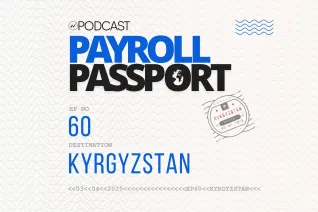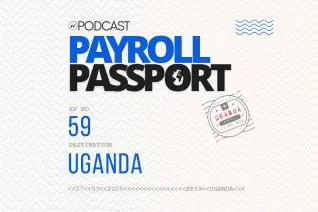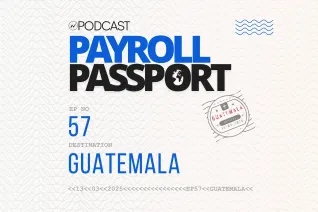Region Spotlight: Compliance in the APAC

The world of compliance is ever-evolving with requirements, constantly on the rise. This often leads to organizations looking at global compliance as the epicenter of business risks. Staying updated to local regulations, policies, and legal amendments becomes an imperative for compliance teams. With that in mind, here’s a 3-part blog series with updates from different regions carefully curated for you. In the first episode, we discuss compliance updates specific to the Asia-Pacific region.
India
– One of the most labor-intensive countries – India has finally taken a leap of faith and codified 29 of its national-level labor laws into 4 Codes. The Code on Wages was notified, the remaining 3 codes being the Industrial Relation Code 2020, the Code of Social Security 2020, and the Occupational Safety, Health and Working Condition Code 2020 was enacted on September 29 2020.
– The Industrial Relations Code 2020 (IR Code) seeks to consolidate and amend the laws relating to trade unions, conditions of employment in industrial establishment or undertaking, investigation, and settlement of industrial disputes, released on October 29, 2020. It repeals:
- The Industrial Dispute Act 1947
- The Trade Union Act 1926
- The Industrial Employment (standing orders) Act 1946
– The Code on Social Security 2020 (SS Code) seeks to amend and consolidate the laws relating to social security with the goal to extend social security to all. Released on November 13, 2020, it repeals and replaces the following nine national labor laws:
- The Employees Provident Fund and Miscellaneous Provisions Act 1952
- The Employees State Insurance Act 1948
- The Employees Compensation Act 1923
- The Maternity Benefits Act
- The Employment Exchanges Act 1959
- The Cine Workers Welfare Fund Act 1981
- The Payment of Gratuity Act 1972
- The Unorganized Workers Social Security Act 2008
- The Building and other Construction Workers Welfare Cess Act 1996
– The Occupational Safety, Health, and Working Conditions Code of 2020 (OSH Code) seeks to consolidate and amend the laws regulating the occupational safety, health, and working conditions of the persons employed in an establishment, released on November 19, 2020. It repeals and replaces the following 13 National labor Laws.
- The Plantation Labor Act 1951
- The Mines Act 1952
- The Working Journalist and other Newspaper Employee and Miscellaneous Provisions Act 1955
- The Working Journalist Act 1958
- The Beedi and Cigar Workers Act 1966
- The Contract Labor Act 1970
- The Sales Promotion Act 1976
- The Inter-state Migrant Worker Act 1981
- The Dock-workers Act 1986
- The Building and other Construction Workers Act 1996
- The Cine-Workers and Cinema Theatre Workers Act 1981
– Senior citizens aged more than 75 years will now be exempted from filing income tax returns. It comes as a major relief for senior citizens as the country’s finance minister, Nirmala Sitharaman announced that those above 75 years of age having only pension and interest as income would be exempted from filing tax returns. Banks paying the interest would deduct the tax on their behalf.
– Regarding relief on income tax structure, individuals are now free to either choose the old regime or opt for the new one. Under the old income tax regime, those with income between INR 5,00,000 and INR 10,00,000 are taxed at 20% while those with income above INR 10,00,000 are taxed at 30%. The old tax regime will include all rebates and exemptions that an income taxpayer can use to reduce their overall tax paid. The new tax regime, however, does not include around 70 of those exemptions. If you choose to be part of the new income tax regime, you will pay lesser income tax, but you won’t be able to claim around 70 of the exemptions available earlier.
– Change in wage code and interest rates on employee’s PF will be implemented after April 1, 2021. The Ministry of Labor has consulted with stakeholders regarding the new laws and the implementation is set to commence from the current month. As per the new law, companies have to mandatorily ensure that their employees get facilities like PF and ESI. Those working on contract or on a third party basis will not be subject to such benefits and will instead receive their entire pay.
– The last date to file a revised income tax return or belated return on a voluntary basis will now be after the financial year’s close instead of March 31, 2022.
– There is proposal to add Section 206AB to the existent Income Tax Act. This amendment will impose a higher rate for tax deducted at source (TDS) for non-filers of income tax returns. The proposed TDS rate in this section will be higher than twice the rate specified in the relevant provision of the Act, or twice the rate or rates in force, or the rate of 5%.
– Relief to MSMEs sector: Alternate methods of debt resolution and special framework for MSMEs shall be introduced by NCLT. Allocation to MSMEs sectors has also been doubled from the current year to Rs15,700cr.
– Amendment on Maharashtra State tax: On February 04, 2021, the finance department of Maharashtra has issued the Maharashtra State Tax on Professions, Trades, Callings and Employments (Amendment) Rules 2021 to additionally correct the Maharashtra State Tax on Professions, Trades, Callings and Employments Rules, 1975. This will come into effect from April 01, 2021.
Singapore
As announced during the Singapore Budget 2018, the GST would be raised from 7% to 9%, between 2021 to 2025 but due to COVID-19 and the current economic environment, the government decided that the GST rate rise will not take effect in 2021. There has been no increase in Government related fees and will continue to be the same till March 2021.
Vietnam
– Vietnam approved an amended labor code, which came into effect in January 2021.
– Most of the code remained the same; however, the following changes were observed.
- The working hours limit remains the same as 48 hours per week, the new code states that the normal working hour cannot exceed 8 hours a day or 48 hours a week. However, suppose the employee and employer agree to an overtime deal. In that case, overtime cannot exceed 12 hours a day, 40 hours a month, and 200 hours a year for industries such as textile, clothing, footwear, electronics. In cases where seasonal orders during certain times of the year require an extensive workload, an overtime cap of 300 hours has been specified.
- The amended labor code now lists only two types of labor contracts as compared to three earlier – definite-term contracts, which cannot have a term longer than three years, and indefinite-term contracts. The definite contract can be renewed once. Foreigners who have work permits valid for two years will also be able to renew them only once. Seasonal contracts will no longer be permitted from 2021.
Macau
The country gives a 30% exemption on salaries tax in 2021.
Thailand
The deadline for paying personal income tax is extended till June 30, 2021, while for paying withholding tax, VAT, and self-assessed VAT, it is extended till July 31, 2021. Social security contribution rates would be reduced for the two-month salary cycles from February 2021 to March 2021. The reduced rates would apply to the maximum salary of THB 15,000.
It looks like a lot is happening in the APAC region from the compliance standpoint. To learn how to disentangle multicountry HR compliance, take a look at this brochure. In the next episode, we will bring recent updates in the regulatory environment of North America to the table. Until then, sayonara!
Latest Resources
Stay informed with latest updates
If you're curious and have a thirst for knowledge pertaining to the HR, payroll, and EOR universe, don't miss out on subscribing to our resources.















